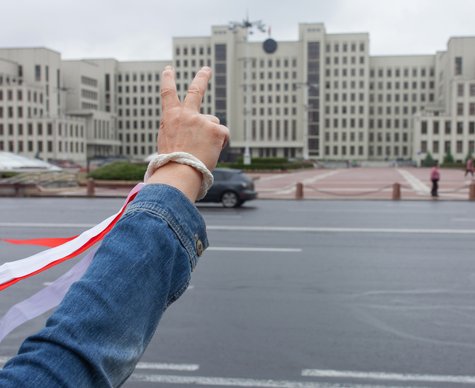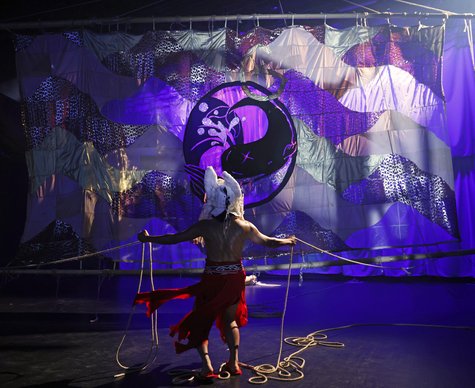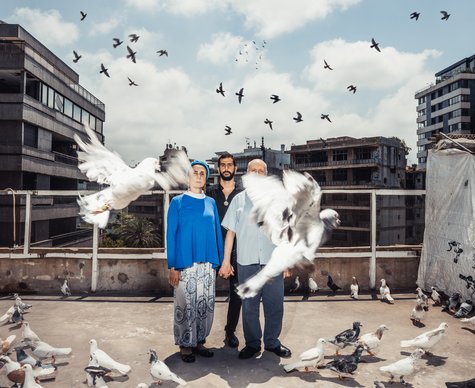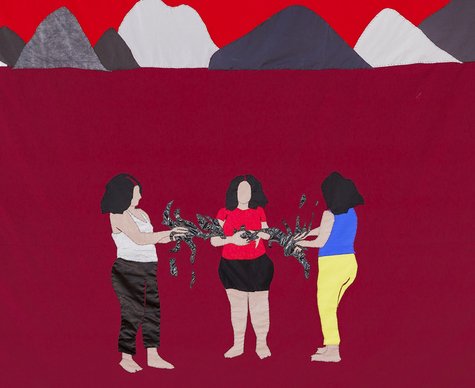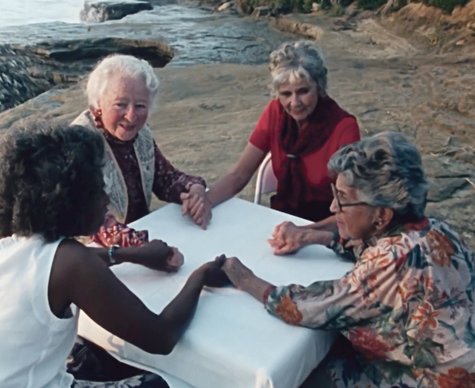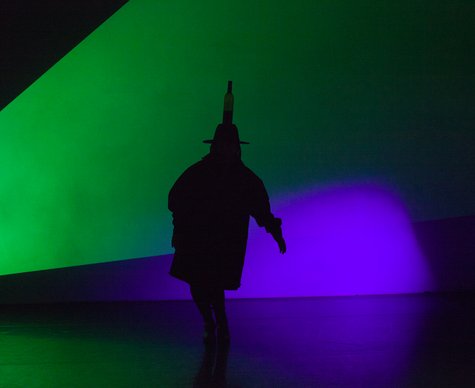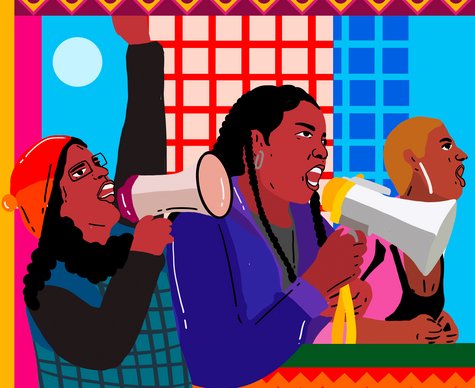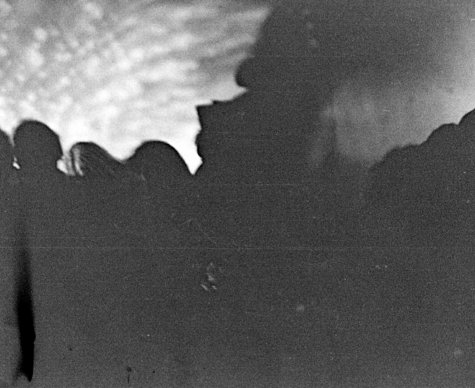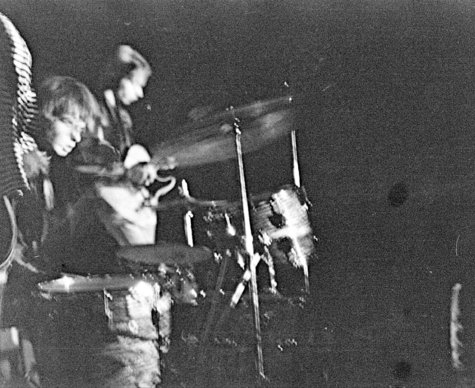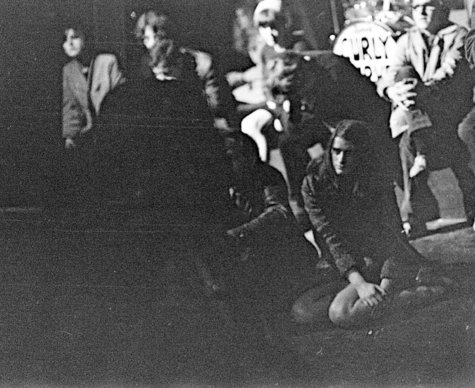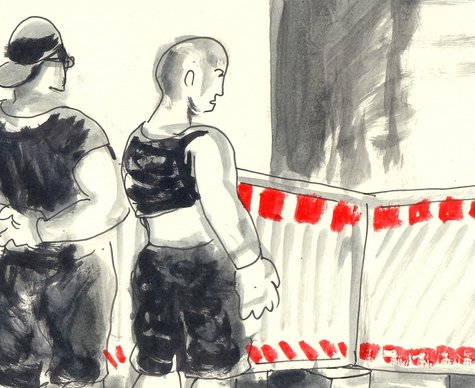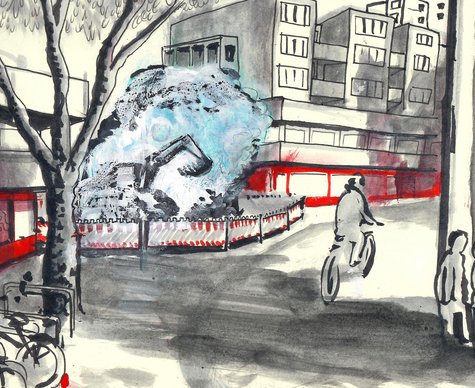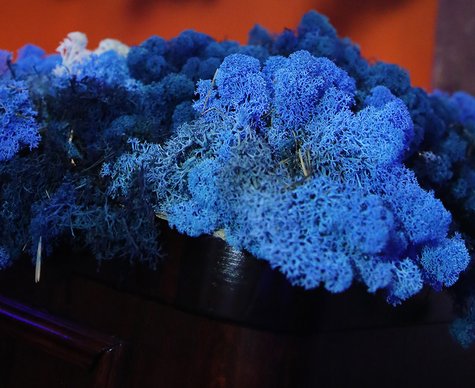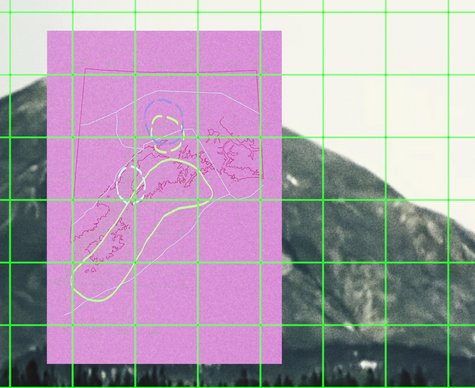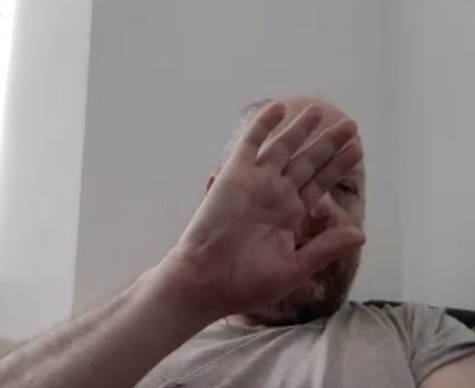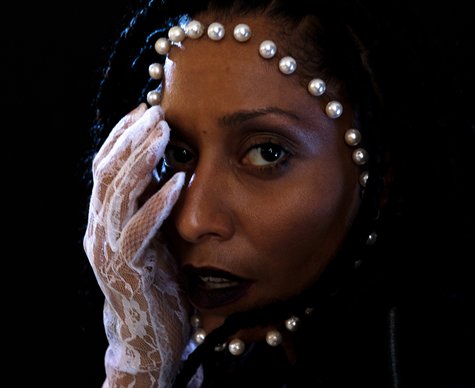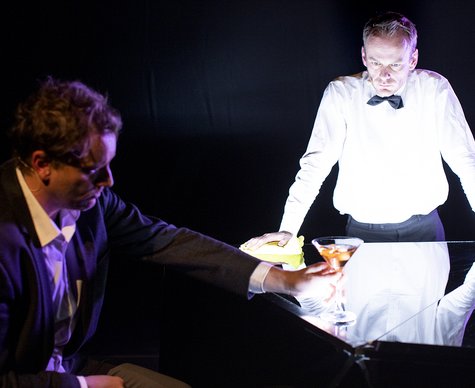Rasha’s Merciless Gaze: Resistant Theatre
With: Maya Alban-Zapata
Part of “Radical Mutation: On the Ruins of Rising Suns”
Afterwards: Talk with Bárbara Santos, Pepetual Mforde Chiangong, Maya Alban-Zapata, Raphael Hillebrand and Label Noir (Lara-Sophie Milagro and Jonathan Kwesi Aikins)
- Dialogue
- Performance
The evening centers narratives of Black, Afro-diasporic and African practitioners working and living in Germany and discusses strategies and spheres of action for resistance and liberation within arts and culture, questioning the manifold power dynamics at play. The relationship between Black, Afro-diasporic and African performers and the German entertainment industry, has historically been shaped by racist and sexist power structures. Yet, efforts to undermine these structures and create spaces of self-determination and solidarity are as old as the entertainment industry itself. This evening centers Rasha, an actress who was born in Madagascar. She performed with her German husband at the funfair on Leopoldplatz (Wedding) in the 1920s, operated by Adolf Rautmann, better known as Onkel Pelle. She was known for performing with her snake, a Boa constrictor, that resided in her caravan’s ceiling, and was portrayed by the German artist Christian Schad in his double-portrait from 1929 titled “Agosta, the Pigeon-Chested Man, and Rasha, the Black Dove”. Shad’s portraits often depicted people framed as outsiders and freaks living and working at the margins of the Weimar Republic society. The absence of Rasha’s last name, unrecorded and never captured by Schad during the painting sessions, mirrors a system that served the white gaze and denied African and Afro-diasporic performers their dignity.
The histories of women* performers in particular, are often relegated to the margins of the archives, further perpetuating their silencing through sexist and racist power structures. Rita Dove’s poem “Agosta, the Pigeon-Chested Man, and Rasha, the Black Dove” (1983) deconstructs the dynamic between Schad and Rasha, by letting Rasha gaze at Schad, mercilessly. Taking inspiration from this shift, this evening invites Black theatre practitioners to reflect on their experiences in Germany and the historically charged relationship between the institution of the theatre and Black practitioners in Germany. How could a radical reversal of gaze manifest in theatre making? How can theater practices in Germany radically center Black and PoC perspectives, histories and audiences?
The evening features a performance by Maya Alban-Zapata, followed by a conversation between Bárbara Santos, Pepetual Mforde Chiangong, Maya Alban-Zapata, Raphael Hillebrand and Label Noir (Lara-Sophie Milagro and Jonathan Kwesi Aikins)
Musical Prologue: Lamin Fofana
Performance: Maya Alban-Zapata
Conversation: Bárbara Santos, Pepetual Mforde Chiangong, Maya Alban-Zapata, Raphael Hillebrand and Label Noir (Lara-Sophie Milagro and Jonathan Kwesi Aikins)
Rita Dove: Excerpt from “Agosta, the Pigeon-Chested Man, and Rasha, the Black Dove” (1983),
He thought
of Rasha, so far from Madagascar,
turning slowly in place as
the boa constrictor
coiled counterwise its
heavy love. How
the spectators gawked, exhaling
beer and sour herring sighs.
When the tent lights dimmed,
Rasha went back to her trailer and plucked
a chicken for dinner
(...)
Ah, Rasha's
foot on the stair.
She moved slowly, as if she carried
the snake around her body
Always.
(...)
once
she brought fresh eggs into
the studio, flecked and
warm as breath
Agosta in
classical drapery, then,
and Rasha at his feet.
Without passion. Not
the canvas
but their gaze,
so calm,
was merciless.
Dates
Location
HAU1
Stresemannstr. 29, 10963 BerlinThere are two marked parking spots in front of the building. Access to the Parkett by means of a separate entrance with lift when necessary. Barrier-free restroom facilities are available. Tickets for wheelchair users and accompanying persons can be booked via the ticketing system. If you need any help, please contact our Ticketing & Service team at +49 (0)30 259004-27 or send us an email at
tickets@hebbel-am-ufer.de.



















